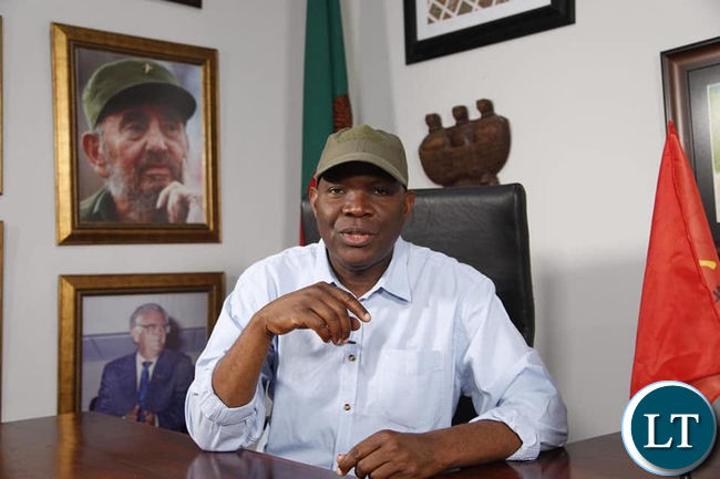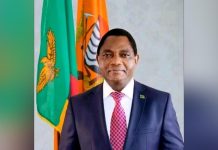Africa-Press – Zambia. Zambia’s Socialist Party President Dr Fred M’membe has expressed concern over the failure of the Bank of Zambia to meet the required K2.6 billion per bond auction. The latest auction results published on February 17 this year saw the Bank of Zambia only raise K854 million, a shortfall of over 67%.
Dr M’membe believes that the subscription rates are an economic barometer of the economy. An over-subscription is generally seen as a mark of economic confidence by investors, while an under-subscription is seen as a score for low investor confidence. He said, “The failure of the Bank of Zambia to raise the required amount shows that investors are on the fence due to uncertainty with regards to national debt restructuring.”
Dr M’membe also expressed concern that the under-subscription of government bonds could negatively impact the funding of government operations. He strongly suspects that financial institution participation in government securities has dwindled, resulting in low subscriptions. “The effects of removing liquidity from the markets are now being seen, and we will not be surprised if the bankers of economic evils eventually start printing money,” he said.
The Socialist Party President further stated that the rise in interest rates in the United States and Europe is incentivizing non-resident investors to pull out of emerging markets bond investments and redirecting back to the United States and Europe, which carry less country risk than emerging markets. He believes that this will result in a net payout position for government securities with the following consequences: “Depletion of international reserves as investors externalize their investment, pressure on the Kwacha with a medium-term outlook of continued depreciation, which will result in higher, imported inflation impact.”
Dr M’membe has called for urgent action to address the situation. He believes that reversing the generous tax holidays given to the mining sector, engaging China on a bilateral basis to give Zambia a three-year moratorium on its debt, and introducing austerity measures, including government-wide international travels at all levels, including for the Head of State, are necessary steps to take. He also called for the reversal of wrong monetary policy decisions taken by the Bank of Zambia to increase the statutory reserve ratio.
“The under-subscription in government securities is partially due to reduced participation of the banks in subscribing to government securities,” he said. “It is also clear that this policy direction will not impact the exchange rate depreciation as it is now evident that the forex demand side is significantly driven by non-resident/offshore investors cashing out and not rolling over their government securities. This is a highly misdirected policy decision.”
Dr M’membe believes that the situation is urgent and that the government must act quickly to find alternatives to raise funds for the shortfall. “Given the already underperforming economy, what alternatives does the government have? External loans? But who will be ready to give us loans? The commercial loans window is closed given the debt default and limited bilateral funding.”
For More News And Analysis About Zambia Follow Africa-Press







